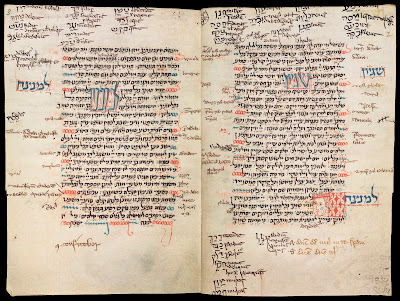Psalm 129 - Often have they attacked me
WARNING: A disturbing image showing brutal wounds of a self-liberated formerly enslaved man follows the psalm text.
A Song of Ascents
1) Often have they attacked me from my youth
—let Israel now say—
2) often have they attacked me from my youth,
yet they have not prevailed against me.
3) The plowers plowed on my back;
they made their furrows long.
4) The Lord is righteous;
he has cut the cords of the wicked.
5) May all who hate Zion
be put to shame and turned backward.
6) Let them be like the grass on the housetops
that withers before it grows up,
7) with which reapers do not fill their hands
or binders of sheaves their arms,
8) while those who pass by do not say,
“The blessing of the Lord be upon you!
We bless you in the name of the Lord!”
Psalm 129
Not included in the Revised Common Lectionary.
The shocking photo tells a small piece of the shameful history of slavery. Gordon, also known as "Whipped Peter" and "Poor Peter," escaped from his enslavement in March 1863 from the 3,000-acre plantation of John and Bridget Lyons. After he made his way 80 miles over 10 days to a Union Army encampment in Baton Rouge, he was photographed during a medical examination. Original caption: "Overseer Artayou Carrier whipped me. I was two months in bed sore from the whipping. My master come after I was whipped; he discharged the overseer. The very words of poor Peter, taken as he sat for his picture."
The long furrows plowed on his back (verse 3) are more than a metaphor. They are the living witness of trauma to a person, to generations, and to a nation which comprised victims, perpetrators, and perpetuators. They speak of a cycle of exploitation and oppression, violence and trauma, and yes, profit.
This reflection is consciously in dialogue with Psalm 128 and very much in the context of the current (April 2024) Israel/Gaza conflict. And for that we have to start with trauma. The personal trauma of people brutalized by violence. And the collective and historical trauma of peoples who have suffered violence and oppression over generations or centuries.
The conflicts between peoples and nations do not allow for simple resolution, because the wounds are both fresh and scarred over.
"May all who hate Zion be put to shame," may their plans be frustrated (v5), may they find no blessing (v8). "May they wither" (v6) sounds like a gentle version of the wish for the suffering and death so often wished upon the adversary. Revenge seems like the closest the injured can get to justice, and also a necessity for safety. Trauma takes us to primitive places in our body, mind, and social responses. Trauma literally limits our options.
All too often, our most intractable problems do not have yes or no, black or white, this one's right and that one's wrong solutions.
The destruction of the Temple and the Jewish state in 70 C.E. still echoes through present-day events, as that began a long chain of wrong. The world's hatred and indifference to the Jewish people led to the modern state of Israel, born in conflict, with colonial powers deciding that the Palesinians of 1948 had to give way for a new Zion. Nd since then, there has been a repetitive cycle of conflict, with every side justified in claiming "they started it."
The horrors are all too real. Land and heritage are taken, loved ones broken, hopes dashed against the rocky ground.
We know the truth that the righteous, in the grip of fear and pain and rage, can tragically take on any or all the characteristics of their adversaries. Knowing this does not prevent it, because our capacity to believe in the right or necessity of our own cause seems unbounded.
We need not juxtapose the images of innocents targeted and killed in Israel with their counterparts in Gaza to know the tragedy that also knows no bounds.
There is no comparison or competition between suffering. Whatever side of the border, the damage is all too real. It is a Biblical and an experiential truth that suffering cannot be dismissed.
It is also easier by far, to watch from afar, and pray for all those afflicted and affected, to have our opinions at a distance. We now the path forward cannot be easy, for all to often we are bound by our own traumas, held captive by our own grievances and traumas and unwillingness to do what it takes to seek healing and do the hard work of transformation.
Suffering cannot be dismissed. But it can be remembered, healed, redeemed. It can be made meaningful, and the prompting for new life.
Yet before any give in to despair, we might follow the example of the faithful, and turn to the Lord. Who better to hear our complaint? Who better to judge the righteousness of our plea? Who better to lead us to a way out of the unbearable madness? What other way to a blessing in the name of the Lord?
God, you listen to the cry if every victim. Hear us now. You declare blessings upon the persecuted. Bless also the peacemakers, for every other path leads to destruction. Help us in our sifferingsuffer, and may you and your righteousness alone prevail. Amen and amen.
Credits:
11856 Dry Grasslands. freeimageslive.co.uk by gratuit. - this image licensed under a Creative Commons Attribution 3.0 Unported License.
Peter (enslaved man).. 26 March, 2024) In Wikipedia.
William D. McPherson. (2 April, 1863). Scars of Gordon, edited. Public domain.
* New Revised Standard Version Updated Edition Bible (NRSVUE), copyright © 2021 the National Council of the Churches of Christ in the United States of America. Used by permission. All rights reserved.





Comments
Post a Comment